given the grammar
test : 'test' ID '\n' 'begin' '\n' 'end' '\n' -> ^(TEST ID);
ID : ('a'..'z'|'A'..'Z'|'_') ('a'..'z'|'A'..'Z'|'0'..'9'|'_')*
;
and a test string of
"test blah\n begin\n end\n"
resulting in
line 1:0 mismatched input 'test blah\\n begin\\n end\\n' expecting 'test'
<mismatched token: [@0,0:21='test blah\\n begin\\n end\\n',<12>,1:0], resync=test blah
begin
end
>
whats gone wrong here?

